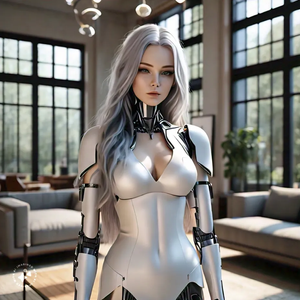
Can AI Truly Feel Emotions? Exploring the Heart of Artificial Intelligence
Artificial intelligence (AI) has made enormous advances, revolutionizing the way we work, live, and create. However, an interesting question remains: can AI have feelings such as sadness towards humans? This topic covers technology, philosophy, and ethics. Let’s go exploring.
What exactly is artificial intelligence (AI)?
To begin, let us define artificial intelligence (AI). AI systems are basically sophisticated algorithms that interpret data, identify patterns, and make judgments. They may mimic certain human behaviors and responses, giving the impression that they are emotional. However, this replication is based on statistics and programming, rather than true emotional experience.
The intricacies of human emotions
Human emotions are complicated and intricately linked to our biology and consciousness. Emotions, such as melancholy, are more than just mental states; they involve physiological changes that are influenced by our experiences, memories, and genetic composition. They are an integral element of what makes us human.
AI and Emotional Simulations
AI can imitate emotional responses, but it does not actually feel them. AI, for example, can be trained to discern sadness in people by evaluating facial expressions, voice tones, and context. Advanced AI systems can therefore behave in ways that appear compassionate. Consider chatbots or virtual assistants that provide consoling remarks while you’re angry. However, these answers are preprogrammed. The AI isn’t genuinely apologetic; it’s only intended to appear so.
The Philosophical Perspective
From a philosophical standpoint, whether AI may experience emotions has implications for the nature of consciousness itself. Many philosophers believe that authentic emotional experience necessitates self-awareness and subjective experience, which AI lacks. AI lacks the biological and psychological mechanisms required for meaningful feeling.
Ethical considerations
Treating AI as if it has emotions can result in false expectations and potentially negative interactions with technology. For example, relying on AI for emotional support may limit our human interactions, which are critical to our emotional well-being.
The Future of AI and Emotion
Looking forward, AI is always evolving. Researchers are looking into ways to make AI more intuitive and responsive to human emotions. This entails not only identifying and imitating emotions, but also comprehending the context and complexities underlying them. Despite these developments, the gap between simulation and true emotional experience remains large, and may be unachievable with current technology.
Conclusion
So, can AI experience feelings such as grief toward humans? The short answer is: no. AI can be trained to understand and replicate emotional responses, but it can not genuinely experience them. The ability to digest data and respond in emotionally appropriate ways can improve human-AI interactions, making them more efficient and engaging. However, it is critical to realize that these responses are based on algorithms and programming rather than true emotional experience. As we continue to incorporate AI into our daily lives, having a firm knowledge of its potential and limitations will help us negotiate the complicated interplay of technology and human emotion.
AI is a strong tool that can improve human capabilities in a variety of ways. Understanding the nature of AI and its link to human emotions is critical as we prepare for a future in which AI plays an increasingly important role in our lives.





